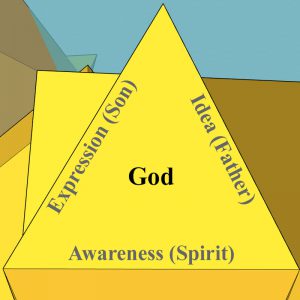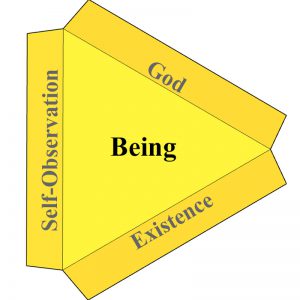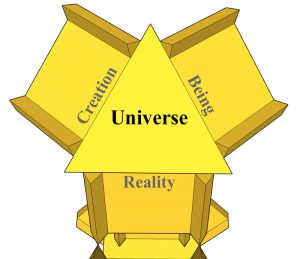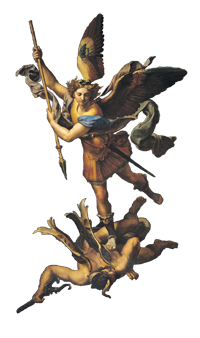One Must Begin Somewhere

Nine months ago, something in me and in reality shifted — imperceptibly, at first — and all I’ve been able to do has been to capture the growing flood of comprehension in scores of notes as each wave of thought pushes me deeper. Now I find myself feeling that I must begin to express the ideas, but with no notion of how to begin. Such ideas require years to organize and a book (at least one!) to articulate. So, perhaps I’ll strive to organize my thoughts in writing of a sort somewhere between my quickly scrawled notes and the perfected chapters I hope one day to craft.
The challenge is that, when I mention a flood of comprehension, I mean thoughts touching on, well, everything. They’re not all connected, and probably cannot be (at least by me), but thoughts and intuitions that have lingered in the air around my contemplation for decades like a damp mist have begun to take shape and to flow. Everything is making sense in a way it never has before, and I’m not sure I can convey that sense without sounding as if the exact opposite has happened to me — as if I’ve lost whatever coherence (and sanity) others might have credited to me in years past.
Where do I begin? Do I build up from subatomic particles, or down from abstract meaning? Or would it be better to trace history forward, or maybe backwards? Maybe moral principle would be a firm foundation on which to build. Or maybe intangibles like love and awe should first be painted in order to capture the imagination. Is theology primary, or physics, or history, or psychology, or literature, or… carpentry? Do I build my paragraphs around the scaffolding of thinkers and ideas with whom and with which readers may already be familiar, or do I first lay out before you that which I think is fresh and new?
I find I must abandon artifice and any plan to draw you along with me edgewise. We can only begin at the very beginning of it all and place our trust in the writings of St. Mark:
[Jesus] said, “This is how it is with the kingdom of God; it is as if a man were to scatter seed on the land and would sleep and rise night and day and the seed would sprout and grow, he knows not how. Of its own accord the land yields fruit, first the blade, then the ear, then the full grain in the ear. And when the grain is ripe, he wields the sickle at once, for the harvest has come.”
Here it is: In the beginning was the Idea. Whether He reposed thus for unknowable eons or for the merest of moments is a nonsensical distinction, because there was no time. Time had no meaning until the Idea gave Expression to Himself, like a Father begetting a Son. Begotten, not made. Between this Father and this Son, the Expression was a complete and total reflection of the Idea all at once, as if speaking a single syllable — “Be” — communicated all that being could possibly mean.
So perfect and complete was this relationship that the Idea and the Expression would have been only the Idea, itself, but for their mutual Awareness of each other, their Paraclete. This Awareness… experience… or Spirit was also complete and total with the other two, but in such a way as to make all three facets of the Trinity distinct: an idea, an expression, and the relationship between them.

This fundamental concept, this primary identity, is God, who expresses Himself, in total, as Self-Observation, itself, and the experience of this mutual relationship is Existence. Thus emerges a second syllable (“Yahweh,” or “I Am”) and a secondary trinity: an idea, expression, and relationship forming, together, another unique identity on a more-detailed plane, and it is Being.

That which Being expresses is Creation, and their relationship is Reality — still total and complete, yet now with conceptual differences, such that “we all are.” This is the Universe.

Now the concept gains such abstract dimension that an image cannot capture it. (Although some artistic license produces the featured image of this post.) God expresses Himself as the Universe, and this mutual observation is Being, forming, as an identity, the Multiverse because it contains all but can be observed otherwise than as a whole. Just as the Spirit created space by which the Father and Son could be aware of each other and be different, so does this layered existence create space for God and the Universe to be aware of each other in varying depths of Being.
This framing contrasts with the understanding of the multiverse popularized in science and in fiction. In my model, the multiverse is not a higher plane on which many universes exist. Rather, the Universe contains every probability that the nature of God (the Idea) allows. What produces the appearance of multiple universes is that this one Universe can be observed from different angles.
Next, this choice of observation creates Will. One step down from the unity of God, free will creates different beings, each simultaneously following different sequences, and each defined, as an identity, according to the expression of its will. The idea of each entity is the probability of its observations, which is expressed in the action of observing one thing and not another, and the relationship between these two aspects, their mutual experience, is the entity’s consciousness of being.
Across the Multiverse every possibility exists, in a sense, just as the word “Be” contained every possible meaning of “being.” Likewise, every possible sequence of observations exists, but as a probability. Each is real, because observed by God, but it does not become what we tend to think of as “real” until it is observed by another, who by that observation establishes a unique relationship with God.


